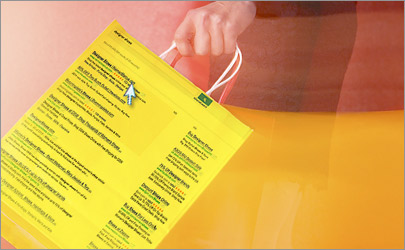
Paid search on a brand name is an important advertising mechanism for marketers looking to drive traffic to their Web site (and, in turn, encourage purchases in a store), no
doubt. But they may not want to ignore the organic links and third-party sites that pop up with generic terms.
According to new research from GroupM Search, 86% of buyers who make their
purchases in-store use a generic term to find what they’re looking for before they head out to the store to buy it. The recently concluded research also shows that when consumers click on a link
after a search, 90% of the time they’re using the organic search listings.
“People know the categories they’re interested in, and in very specific instances [the remaining
14%], they know the brand,” Chris Copeland, CEO of GroupM Search, tells Marketing Daily. “But for the most part, they’re trusting Google and Bing to find what they’re
looking for.”
advertisement
advertisement
And they’re relying on Internet searches more and more. According to the research, 93% of all buyers, whether purchasing online or in-store, use search, and 80% of
them rate it as very or extremely useful. But with such a preponderance of searchers using organic links, many brands and retailers may want to rethink their strategies, Copeland says.
“I don’t think advertisers or retailers have bet big enough on organic search. I think they have to bet bigger,” he says. “You’ve got to find ways of providing larger
blocks of content that the engines can grab onto.”
Much of that content may not even be on a brand’s home site. For the most part, when consumers do click-through after a search,
they’re not going to a brand site, but rather to a third-party site that may contain reviews or other information, Copeland says. Moving forward, brands and retailers may want to find ways to
more closely connect with those sites in more relevant ways.
“Brands have to do a better job of linking with the purchase [made] in store, the way digital retailers do today,”
Copeland says. They also need to get more inside the head of the consumer to better enable what he or she is looking for; more than 5% of the traffic that is measured to an advertiser’s site is
looking for a store locator, according to the research.